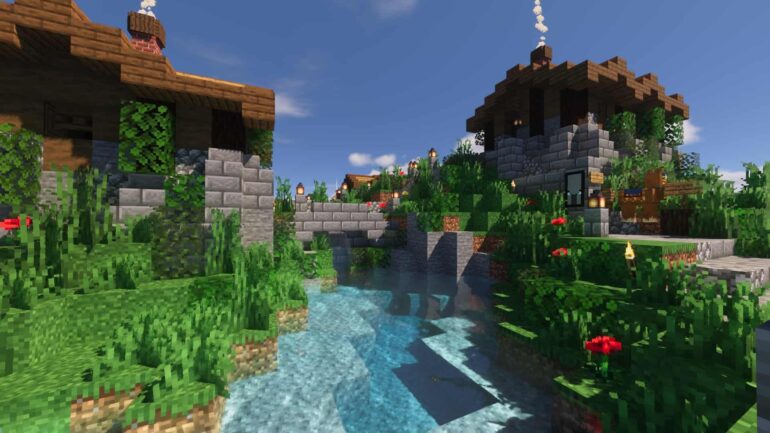TL;DR:
- Voyager is a pioneering Minecraft agent empowered by GPT4 and lifelong learning capabilities.
- It operates autonomously, exploring new worlds and acquiring skills without human intervention.
- The agent consists of an automatic curriculum, an expansive skill library, and a program enhancement mechanism.
- Voyager’s black box queries eliminate the need for fine-tuning, ensuring efficient communication with GPT-4.
- It outperforms previous methods in Minecraft, excelling in rare item discovery, distance traveled, and tech tree progression.
- Voyager’s compositional synthesis of complex skills prevents catastrophic forgetting and enables contextual learning.
- The agent’s skill library is built over time and can be applied to new Minecraft environments.
- An iterative prompting system helps Voyager refine its programming and ensures task completion.
Main AI News:
The realm of artificial intelligence is currently facing a significant challenge: creating autonomous entities that possess the ability to plan, explore, and learn in dynamic environments. Conventional approaches rely on reinforcement learning and imitation learning, which hinder systematic exploration, interpretability, and generalization. Recent breakthroughs have leveraged large language models (LLMs) to develop agents that utilize the world information stored within pre-trained models, enabling the creation of coherent action plans and executable policies. These LLM-based agents are not only applied in non-embodied natural language processing tasks but have also found utility in embodied domains like gaming and robotics.
Introducing Voyager, the groundbreaking LLM-powered agent designed specifically for Minecraft. Voyager operates autonomously, perpetually venturing into uncharted territories, acquiring new proficiencies, and uncovering new frontiers, all without any human intervention. This revolutionary agent comprises three core components:
- Automatic Curriculum: Voyager utilizes an educational framework that prioritizes discovery. It intelligently selects tasks and challenges to foster continuous growth and skill development.
- Expansive Skill Library: As Voyager embarks on its explorations, it builds an ever-expanding repository of executable code. This comprehensive skill library stores and recalls complex activities, facilitating seamless adaptation to diverse scenarios.
- Program Enhancement Mechanism: Voyager’s advancement is propelled by an iterative process that incorporates feedback from the surrounding environment, execution errors, and self-verification. This mechanism continuously refines and enhances the agent’s programming capabilities.
By employing black box queries to interact with GPT-4, Voyager eliminates the need for fine-tuning model parameters. The acquired proficiencies of Voyager accumulate and counteract catastrophic forgetting, ensuring longevity, interpretability, and compositional adaptability. Empirical evidence demonstrates Voyager’s exceptional performance in the popular video game Minecraft, showcasing its robust potential for lifelong contextual learning. It excels in various aspects, such as discovering rare goods 3.3 times more frequently, traversing greater distances 2.3 times faster, and achieving crucial milestones in the game’s tech tree up to 15.3 times quicker than previous state-of-the-art methods. Unlike alternative approaches that struggle with generalization, Voyager can leverage its acquired skill library to tackle novel challenges from scratch in new Minecraft environments.
Voyager’s rapid growth is enabled by the synthesis of complex skills in a compositional manner, effectively combating the detrimental effects of catastrophic forgetting prevalent in other forms of continuous learning. The agent’s progress in exploration and its current state is taken into account by the automatic curriculum, which continually proposes increasingly challenging tasks for Voyager to tackle. Guided by the overarching objective of “discovering as many different things as possible,” GPT-4 creates a dynamic course outline, effectively operating as a novelty search algorithm within a specific context. Each program within Voyager’s skill library includes an embedded description that serves as an index, enabling retrieval for similar future instances.
However, despite the power of LLMs, they often require assistance in generating accurate action codes in real time, with frequent errors. To address this challenge, the research community has proposed an iterative prompting system:
- Voyager creates code to perform a specific task and gathers data from the Minecraft simulation, along with a compilation error stack trace.
- GPT-4 incorporates the comments and feedback obtained from the code execution, refining its request for improved programming.
- This iteration process continues until a built-in checker verifies task completion, ensuring that the code is added to Voyager’s skill library.
Voyager represents a significant leap forward in the field of AI-powered gameplay. With its unparalleled ability to adapt, explore, and learn, this cutting-edge agent is reshaping the landscape of Minecraft and inspiring new.
Conlcusion:
Voyager’s integration of GPT4 and lifelong learning capabilities represents a groundbreaking advancement in the Minecraft market. This innovative agent showcases the exceptional performance, outperforming previous state-of-the-art methods and offering unparalleled adaptability and exploration capabilities. The ability to learn autonomously and apply acquired skills in new environments opens up a multitude of possibilities for gamers and game developers alike. With Voyager leading the way, the Minecraft market is poised for a new era of immersive and intelligent gameplay experiences.

